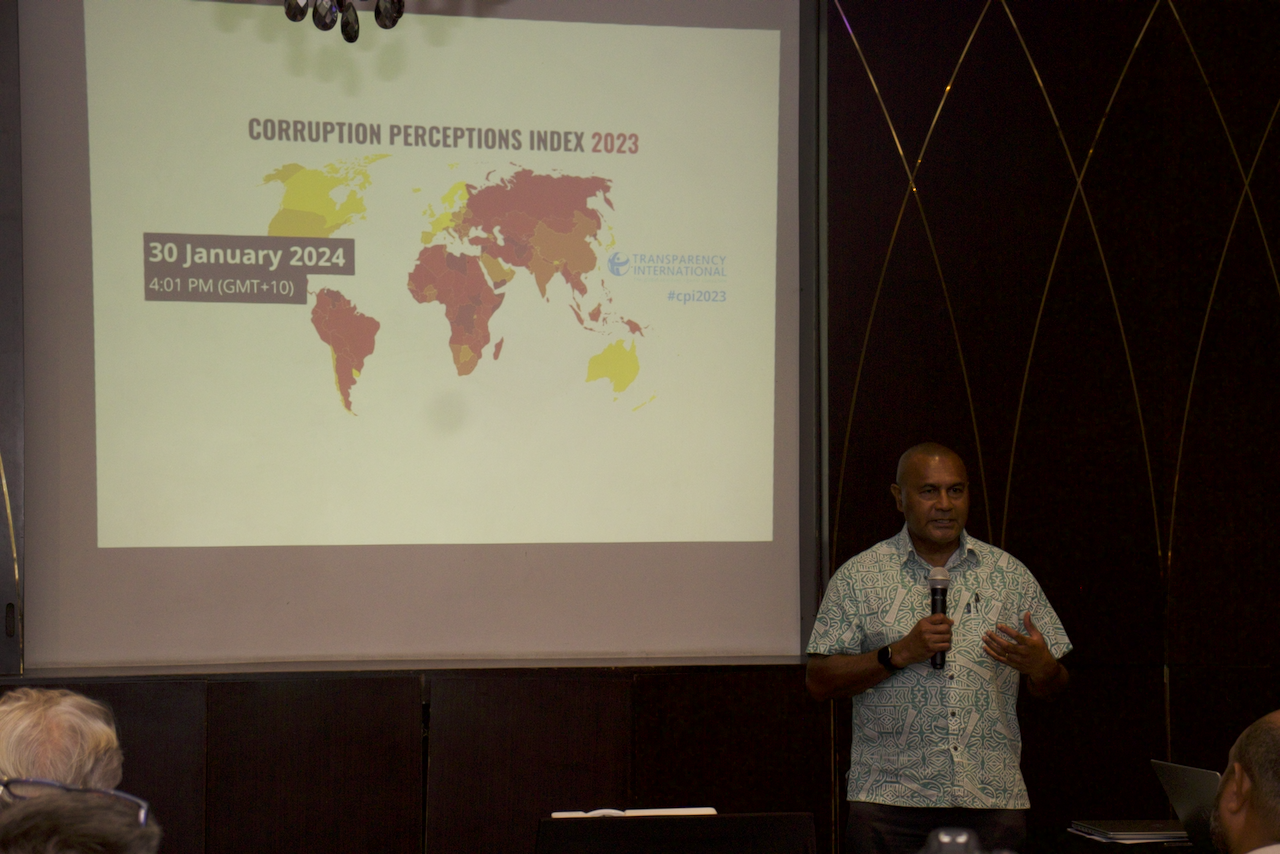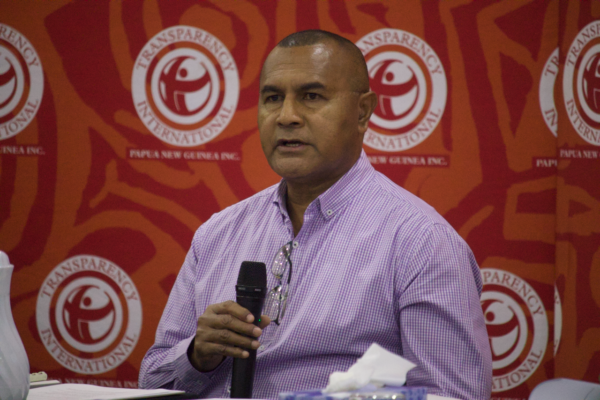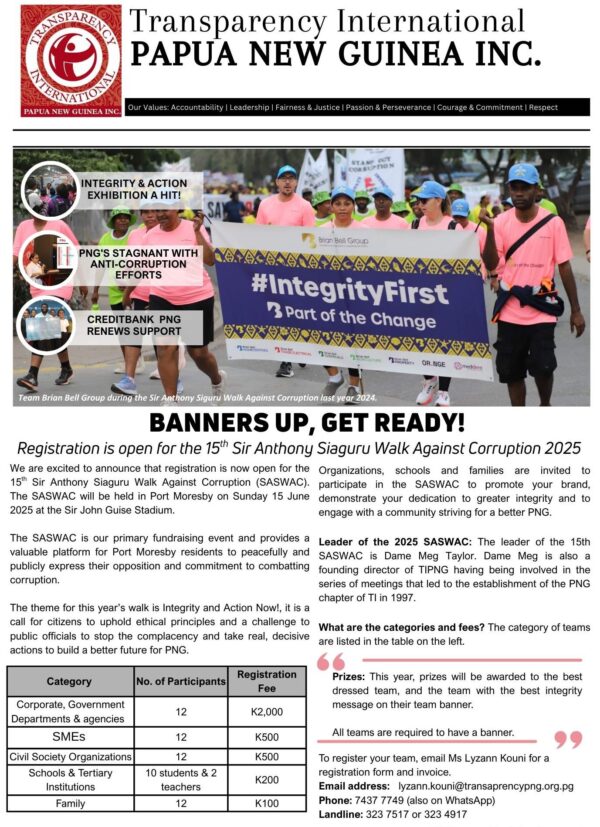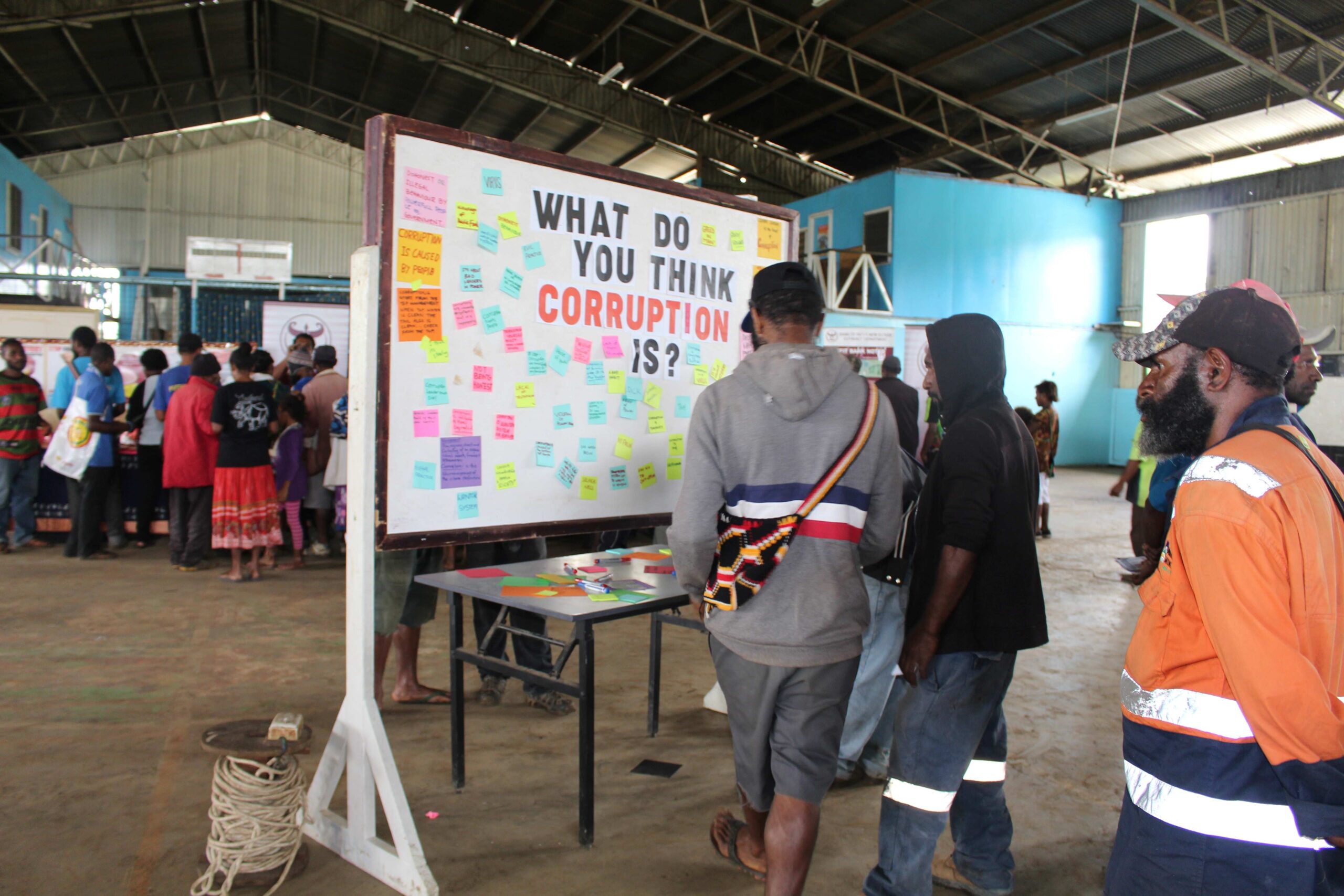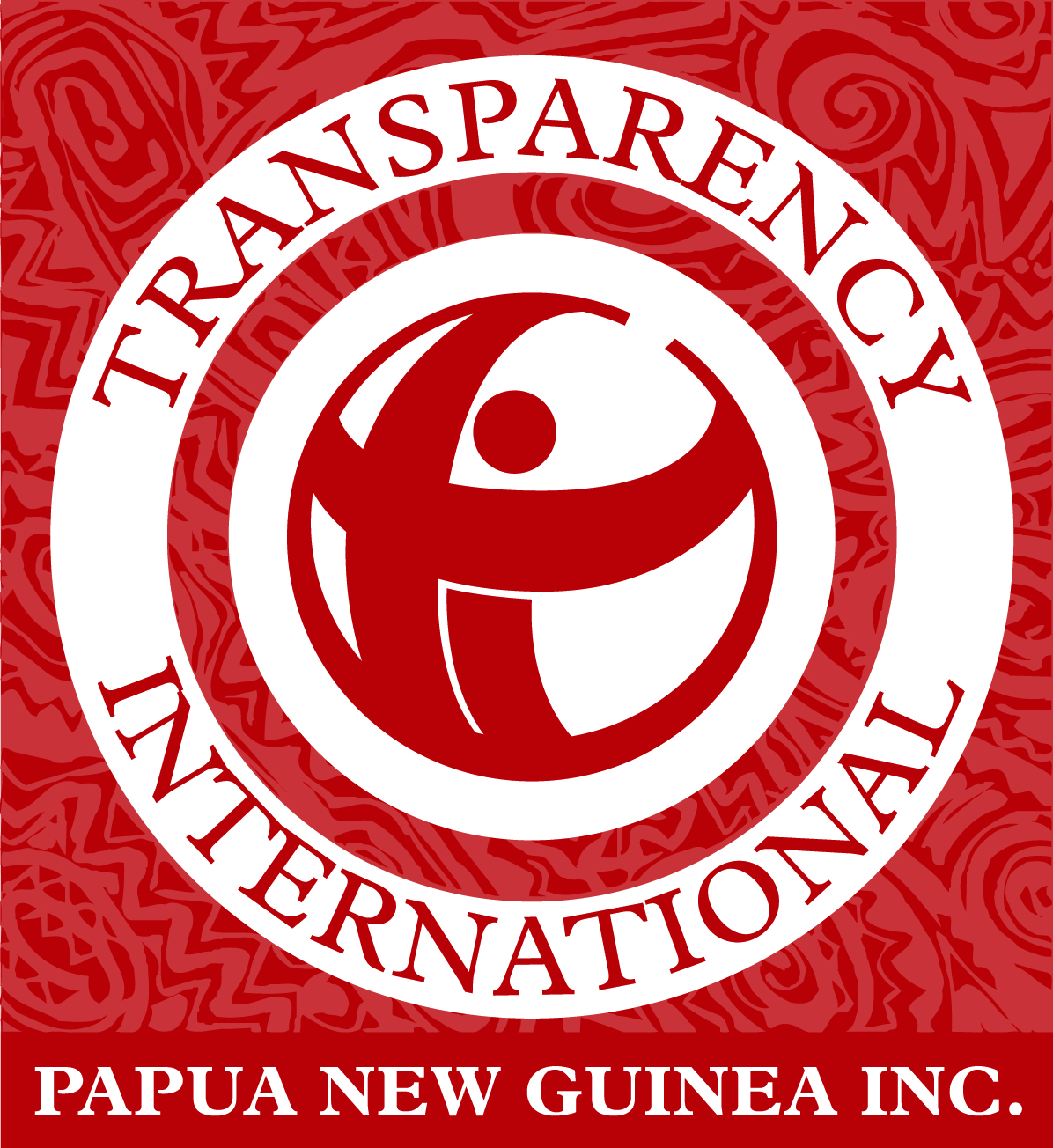Transparency International PNG (TIPNG) released the results of the 2023 Corruption Perceptions Index (CPI).
The Corruption Perception Index (CPI) is a report that scores countries and territories around the world that record perceptions of public sector corruption. The scores reflect the surveyed views of economic experts and business people, not the general public. Countries are scored on a scale of 0 to 100. 100 being very clean and 0 being highly corrupt.
On the 2023 Corruption Perceptions Index, Papua New Guinea scored 29 out of 100, which reflects a high perceived risk of encountering corruption in interactions with the public sector in the country.
Whilst presenting the results of the 2023 CPI, TIPNG Chairman, Mr. Peter Aitsi raised concerns that the nation still seemed not be to be making meaningful impact on reducing levels of corruption in the public sector. He acknowledged the PNG Government’s efforts in tackling corruption as demonstrated through recent interventions including:
- The amendment of the Proceeds of Crime Act with Unexplained Wealth provisions;
- The enacting of the Whistleblowers Act;
- The enacting of the Independent Commission Against Corruption, appointing
commissioners and funding operationalization through the national budget; - The inclusion of governance within the Medium-Term Development Plan IV 2023-
2027.
“These initiatives by Government are aimed at fostering greater levels of transparency, accountability, and restoring good governance. While these are well-intentioned legislative and policy interventions, the breakdown in implementation and enforcement is perhaps where we are weak,” said Mr Aitsi.
As Papua New Guinea prepares its 2nd cycle Country Report under the United Nations Convention Against Corruption (UNCAC), TIPNG believes that there is an opportunity to strengthen national anti-corruption coordination.
“To achieve meaningful change in 2024, we (TIPNG) are calling on the PNG Government to convene regular meetings of the National Anti-Corruption Strategy Taskforce, co-chaired by the Departments of Justice & Attorney General and Prime Minister & National Executive Council. This can then ensure progress on other key areas requiring attention, notably the Electoral Reforms being led by the Special Parliamentary Committee, Police Reform in line with the recently launched corporate plan, and National Freedom of Information Policy and Legislation,” said Mr Aitsi.

